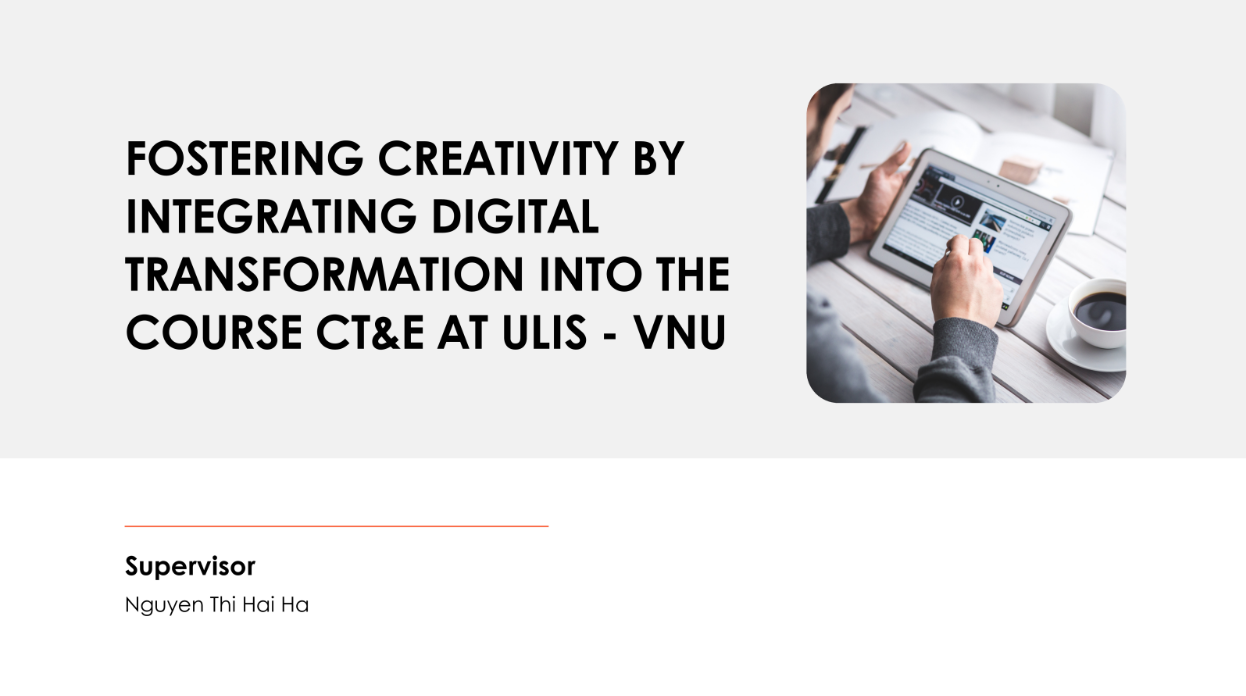In 2021, UNESCO, with the definition of the European Commission, considered Entrepreneurship education (EE) as a tool for developing skills and mindset in learners to turn creative ideas into entrepreneurial action. It is a crucial competence that is applied to all stages of lifelong learning with an aim to foster personal development, active citizenship, social inclusion, and employability.
In Vietnam, Entrepreneurship education has witnessed exponential growth with its integration into learning programs of more than 120 universities and institutions as a compulsory and optional subject for students, and 10 faculties have established funds for entrepreneurship among students (Pham Tiep, 2024). Notably, Vietnam National University (VNU) has made various ef orts to enhance lecturers’ and students’ entrepreneurship skills by devising the VNU Development Strategy and organizing extensive training. In line with this movement, the University of Languages and International Studies – VNU has introduced the course “Creative Thinking and Entrepreneurship” in 2019. This course aims to equip students with marketable skills for their post-graduation while fostering sustainable entrepreneurship and innovation (Minh Tram, 2021).
However, during the deployment and experimentation phases, there still exist several limitations and deficiencies to be encountered. These include a lack of teaching materials, insuf icient class time to implement activities, a pro-theoretical imbalance of the course content, and inef ective practices that hinder the course objectives to be achieved. This poses a demand for the course to adopt significant changes by incorporating technology in this digital transformation era.
Today, though many experiments and research have been conducted to assess the impact of technology on improving curricula across various fields, there is still a lack of studies focusing solely on entrepreneurship education in Vietnam, particularly regarding the improvement of the course “Creative Thinking and Entrepreneurship” at ULIS with the help of technology. More importantly, most existing studies fail to address the problem of implementing state-of-the-art technologies into the curriculum to foster students’ creativity, which can be found in this study.


